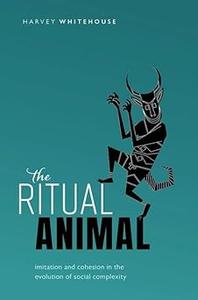
Free Download Harvey Whitehouse, "The Ritual Animal: Imitation and Cohesion in the Evolution of Social Complexity"
English | ISBN: 0199646368 | 2022 | 256 pages | EPUB | 1481 KB
A radical exploration of how rituals have influenced history over thousands of years.
From infancy, we copy those around us in order to be like others, to be one with the tribe. Other primates will copy behaviour that leads to transparent benefits, such as access to food, but only humans promiscuously copy actions that have no obvious instrumental purpose. The copying of causally opaque behaviour (rituals) has allowed cultural groups to proliferate over time and space. The frequency and emotional intensity of ritual performances constrains the scale and structure of cultural groups. Rare, traumatic rituals (e.g. painful initiations) produce very strong social cohesion in small, relational groups such as military battalions or local cults whereas daily and weekly rituals (e.g. collective praying in mosques, churches, and synagogues) produce diffuse cohesion in indefinitely expandable communities. This pioneering study presents a theory of how these two 'ritual modes' have influenced the course of human history over many thousands of years and continue to shape the groups we live in today.
The resulting programme of research offers a radically new paradigm for the social sciences, one that bridges across disciplinary silos, samples the full diversity of the world's populations, and plumbs our richest sources of information about cultural systems, past and present. In doing so, leading anthropologist Harvey Whitehouse shows how we can modify the way we tackle some of the most pressing challenges of our day, from violent extremism to global heating. All the problems humanity creates are ultimately problems of cooperation. Solving these problems will require social glue. Whitehouse suggests various practical ways in which our growing knowledge about the role of ritual in group bonding can help us achieve a more peaceful and prosperous future, not only for ourselves but for all species who share the planet with us.
Read more
